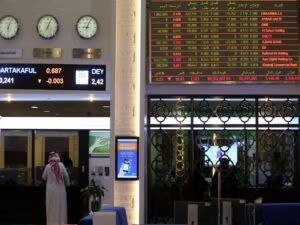The Chinese economy continued to decelerate in August, with a series of major economic indicators performing worse than anticipated, as domestic economic demand continued to decline. Therefore, the Chinese government prevented industries from producing more through its campaign against industrial overcapacity.
National Bureau of Statistics data shows August retail sales rose 3.4 percent year-on-year, missing the 3.9 percent growth forecast and below July’s 3.7 percent.
In LSEG data, industrial output growth was 5.2 percent in August, compared with 5.7 percent in July, the lowest in August 2024. Economists had anticipated that the data would remain the same as it was in the last month.
On an annual-to-date basis, fixed-asset investment increased by a modest 0.5 percent, as compared to the 1.6 percent increase in the January-to-July period, and falling short of the expectations of economists who had anticipated 1.4 percent growth.
In that segment, the decline in real estate investment deteriorated, down by 12.9 percent in the first eight months of the year, government data indicated. There were also investments in the manufacturing and utilities sector that consist of electricity, fuel, and water supplies, which went up by 5.1 percent and 18.8 percent, respectively, compared to the previous year.
Principal economist at think-tank The Conference Board’s China Center, Yuhan Zhang states, “modest and uneven growth,” which has been experienced in the fixed-asset investments in manufacturing. Due to weak real estate activity by privately owned developers and expansion in policy-motivated state investment in infrastructure, high-tech, and industrial transformation.
The urban unemployment rate of China, through a survey, was at 5.3 percent in August, which is slightly above 5.2 percent in July. The statistics bureau explained the increase in the jobless rate was due to the graduation season.
The Statistics Bureau made an English-language release stating that, “We should be aware that there are many unstable and uncertain factors in the external environment, and national economic development is still confronted with multiple risks and challenges.”
It also added, “We must fully implement macro policies, focus on keeping employment, businesses, market…expectations stable, deepen reform and opening up and innovation, to foster steady and healthy economic development.”
Zhang indicated that service consumption took off, with travel, leisure, and transport in the forefront, signaling a slow transition to service spending.

In August, excluding automobile consumption, the retail sales increased 3.7 percent in comparison to last year. The rural consumption growth was faster than that of the urban areas, which increased by 4.6 percent in August compared to last August.
In a press conference after the release, the NBS spokesperson Fu Linghui claimed that it was difficult to determine whether inflation had hit among consumers, but he said consumer prices would keep fluctuating.
China’s consumer price index dropped unexpectedly in the preceding month to 0.4 per cent compared to the previous year, and a deflation in producer prices occurred in the third quarter.
Fu accepted doubt regarding what is known as “imported inflation,” where the prices of the imported goods could rise due to a weakening yuan, the growth of the prices of global commodities, and an increase in the rates of tariffs. Another factor, as he mentioned in favor, was the support of the “anti-involution” policy of over competition and price wars amongst manufacturers, which would ultimately be “spill over” to consumer prices.
Within the categories that enjoyed maximum growth, the sales of gold and silver, and jewelry increased by 16.8 percent in August compared to one year ago. However, sales of sports and entertainment products grew by 16.9 percent, and sales of furniture increased by 18.6 percent.
The largest consumption laggards were petroleum, tobacco, and alcohol related products. The CSI 300 index of the mainland rose by nearly 1 percent shortly after the release of Chinese economic data.
Zhiwei Zhang, president and chief economist at Pinpoint Asset Management, said, “The slowdown is not a surprise to the markets,” as investors had already expected growth to weaken in the third quarter, especially after earlier export gains and stimulus effects diminished.
Zhang added that while Beijing’s fiscal policy might become slightly more supportive, a significant stimulus is unlikely unless needed to prevent missing the 5 percent growth target.






